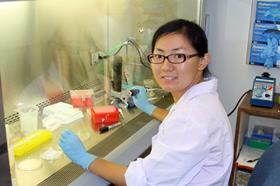
Dipping fruit after harvest with hot water and essential oil dips may reduce postharvest development of citrus black spot (CBS) lesions per fruit by up to 50 per cent, according to new University of Florida Institute of Food and Agricultural Sciences research.
These management techniques are the result of a newly completed doctorate by Jiaqui Yan, who studied at the University of Florida.
Yan’s dissertation focused on citrus black spot and developing postharvest treatments using hot water, fungicides and essential oils to significantly inhibit the development of citrus black spot lesions.
Citrus black spot is caused by a pathogen called Guignardia citricarpa, a fungal disease first detected in 2010 in an Immokalee grove. Similar to canker, citrus black spot forms dark lesions on fresh fruit skin and adversely impacts the crop’s marketability.
As with costly citrus diseases like canker and greening, pathogens often spread throughout the state’s production regions. Yan’s research identified methods to deter citrus black spot development after harvest and during storage.
“Using hot water and fungicides will restrain the pathogen on the fruit. But, essential oils are more effective against the pathogen,” said Yan, who conducted her research at the UF/IFAS Indian River Research and Education Center.
In carrying out Yan’s research, a team of UF/IFAS scientists in three production regions collaborated to help resolve the black spot issue. Mark Ritenour, an associate professor of postharvest technology, supervised her dissertation at IRREC.



